Note from the editor: Houzz is an amazing resource for those looking to update their home, do some decorating, and prepare their home for sale. You can share these these articles with your clients who are looking for ways to fix up their home to help it sell. We appreciate Houzz for providing us with this guest post.
By Lurdes Abruscato, Houzz
The “For Sale” sign is up. You’ve completed the big projects and the little tweaks, so you’re hopeful your efforts will pay off with a quick and profitable offer. But now comes the most critical part of the home-selling cycle: the day of a showing or an open house. A negative first impression can directly translate into dollars off a full asking price. Before opening the door to potential buyers the day of a showing, follow these tips from top realtors and stagers all over the world.
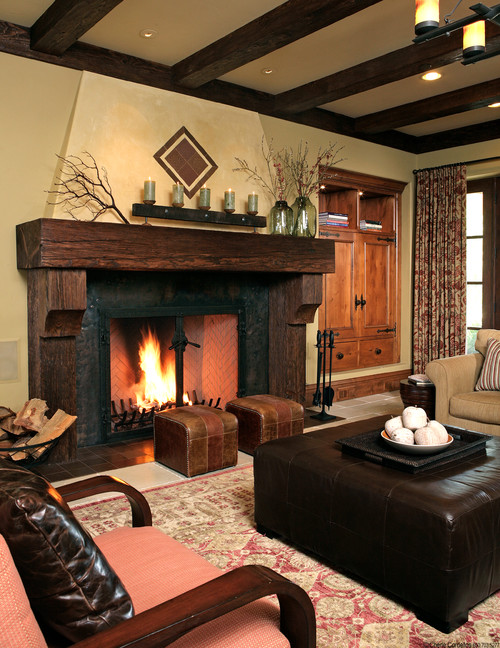
1. Detach from the stuff. Home experts agree the first and most important step to a successful listing is to emotionally separate from the house and the objects within it. “Many clients I work with battle to let go of their property and refuse to take down family photographs and religious items,” says Gregg Churchill, owner of Mr. Home Staging & Design in Perth, Western Australia.
Learn how to get seller leads with our home valuation landing pages
Letting go of the emotional connections to the items inside the home will make you more objective about any necessary changes and more open to Realtor and buyer feedback. To ease the selling process, embrace the idea that your house is a commodity that needs to be sold, and transfer any emotional connections to your new destination, Churchill advises.
Don’t forget: Foyer tables, fireplace mantels and refrigerator doors are popular display spots for loads of personal items like holiday cards, children’s artwork, pictures and trophies. Pare down or clear off these spots for showings.
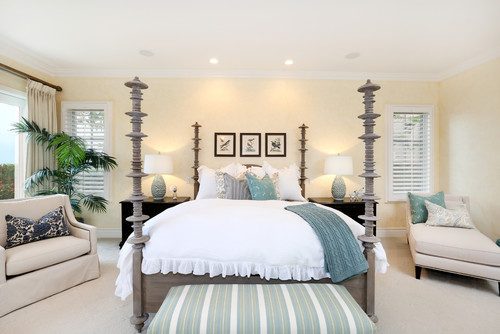
2. Make sure it looks clean. Cleaning seems so obvious, and is inexpensive, but the lack of it is one of the biggest complaints agents hear. Hopefully, you’ve done the big scrub leading up to open-house day: carpets steamed, floors mopped, windows wiped, appliances scoured. But on the day of a showing, don’t overlook little details like crumbs on the table from breakfast, toothpaste remnants in sinks, half-full trash cans on display and dust bunnies in rooms you don’t frequent. Do a quick walk-through with a duster, reaching into recessed lights and corners, suggests Charlie Buckley, associate broker at Mr. Waterfront Team at Long & Foster Real Estate in Annapolis, Maryland.
Straighten the bedspreads in all the rooms, put away loose shoes in hallways and tuck away pet beds and bowls, Buckley says.
For added visual appeal and a more spa-like vibe, switch to new, clean towels just before a showing, say Liz Larson and Jan Poulain of Perfectly Placed for You in Chelmsford, Massachusetts.
Don’t forget: Wipe down surfaces that people would naturally touch, such as stair banisters, hand rails and items that have inviting textures. “People love touching things. Textures change everything, as they propel people into various good spots in their memories. Candles. Shells. A leafy houseplant that says, ‘Touch me,’” says Mathieu Nakkach, CEO of Signature Stagers in Dubai, United Arab Emirates.
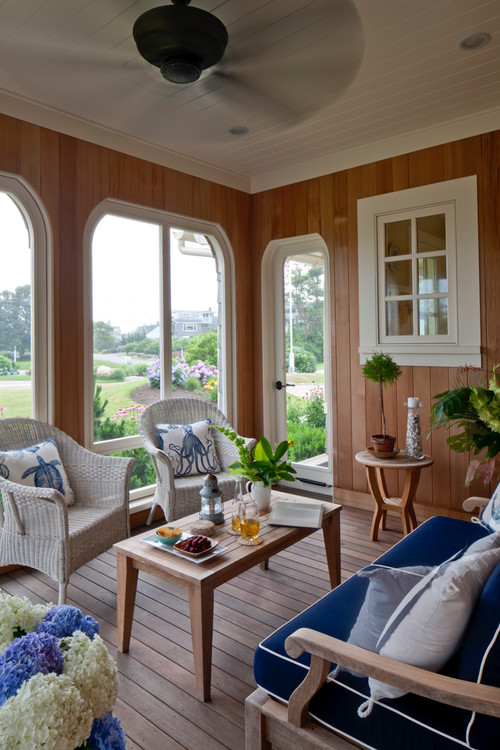
3. Make sure it smells clean too. Besides a home’s visual appeal, nothing triggers more comments than scents. Diffuse cooking, pet and musty odors by airing out the home with open windows or air purifiers.
Comforting smells, like baking bread or brewing coffee, can be appealing to most potential buyers. “I always recommend fresh flowers. Cider on the stove in the colder months is a nice touch,” says Travis Gray, an Annapolis, Maryland realty agent at Coldwell Banker.
But beware of strong spray scents, candles or other products. “Don’t leave plug-in air fresheners around your home. Some people are allergic to scents, and it only highlights that you have an odor problem,” says Monique Shaw, chief designer at Homes Sold Beautifully in Calgary, Alberta.
Don’t forget: Pet foods, toys, litter boxes and blankets may have distinct smells. Stow these items or take them out of the house during showings.
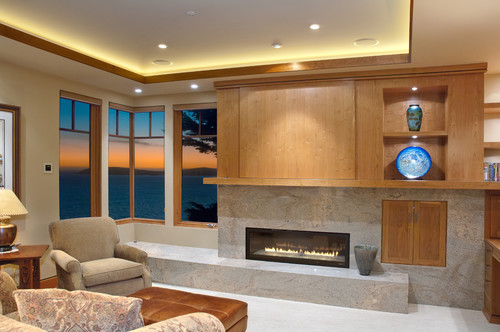
4. Remove sight-line impairments. Artists, architects and designers are well versed in the simple trick of drawing the eye to something appealing, whether it’s a unique color, the next room or a special view. Eliminate items such as knickknacks, toys, small appliances and bath products that stop the eye, or worse, make spaces look smaller. “I am selling the space and finishes of the house, not your personal property,” explains Beth Tyler, a Realtor at Long & Foster in Annapolis.
Though many rugs add warmth and color, consider rolling them up if they break up a room disjointedly or if they obscure attractive selling points like stunning hardwood floors or beautiful tilework. “Bathrooms, especially small ones, will look bigger without the rugs. If it’s a huge master spa bath with a coordinated rug, then it can stay if it warms up a big, cold space,” Tyler says.
Have bins or baskets on hand to clear off countertops, floors, tables and desks. “It’s a lot easier to put away one or two small bins than it is to have to find a spot for 15 different toiletry items,” says Annie Pinsker-Brown, owner of Stage to Sell in Los Angeles.
Don’t forget: Store tablecloths and dish towels to accentuate a kitchen’s workspace and appliances. “Kitchens look bigger if your eye does not stop at the dishtowel on the oven, dishwasher and sink,” Tyler says.
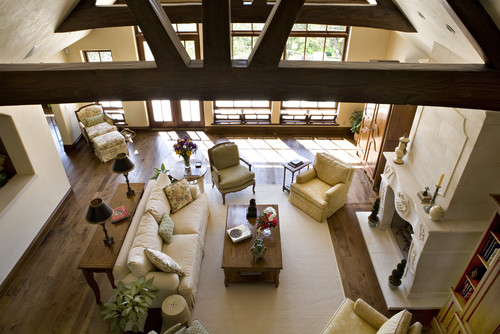
5. Improve traffic flow. Over time, homeowners become desensitized to what their possessions look like and where they are placed, note Laura Grindrod and Carolyn Kibby of Annapolis Staging and Design. The coatrack by the kitchen door, for example, might be practical for your family, but it can look like poor storage to a potential buyer.
Walk through each room and determine if the furniture arrangement contributes to a comfortable flow and use of space, or if it simply is that way because that’s how it has always been, Grindrod and Kibby advise.
Don’t forget: Too little furniture can be just as bad as too much. A tiny couch in a large family room might prompt buyers to worry they’ll never be able to furnish the whole space. If needed, repurpose pieces from spare rooms to comfortably fill out an area.
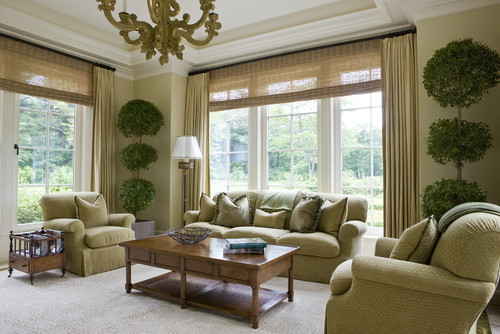
6. Create the “Goldilocks Effect.” No matter what time of day or year, the home’s temperature, lighting and noise levels should be just right during an open house. Room temperatures should be not too hot and not too cold. Blinds, shades and drapes should be open, and lights should be on, says Margaret Melvin, a Columbia, Maryland, associate broker at Prudential PenFed Realty. “A dark house may work when filming a vampire series, but not for selling a house,” she says.
Don’t forget: Let in pleasant ambient sounds, from birds chirping outside to a soothing water feature. Calming music in the background, high enough to hear but low enough to not overwhelm, can do wonders, Nakkach says.

7. Be strategic about handouts and valuables. Documents about the home, especially with attractive photos, should be readily accessible. “I prefer that property brochures and information are in the foyer area, located on a console or table with some fresh flowers. Buyers can pick up that information upon entering or leaving,” says Melvin.
Whether it’s an invitation-only showing or a large opening for the masses, it’s important to safeguard valuables, personal information and sensitive items. Stow small items like electronics, jewelry and prescription medications, and protect financial statements and documents, recommends Pinsker-Brown.
